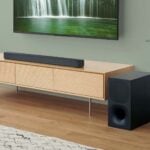chris.big.money
Stunt Coordinator
- Joined
- Mar 14, 2008
- Messages
- 106
- Real Name
- Chris Walter
So in my quest for extending HTiB cables, i only found 22 gauge wire that was not rated for "in wall" installation. is this a big deal? the wall and ceiling that i'm running them through don't have insulation, in case this affects the wire in some way.





